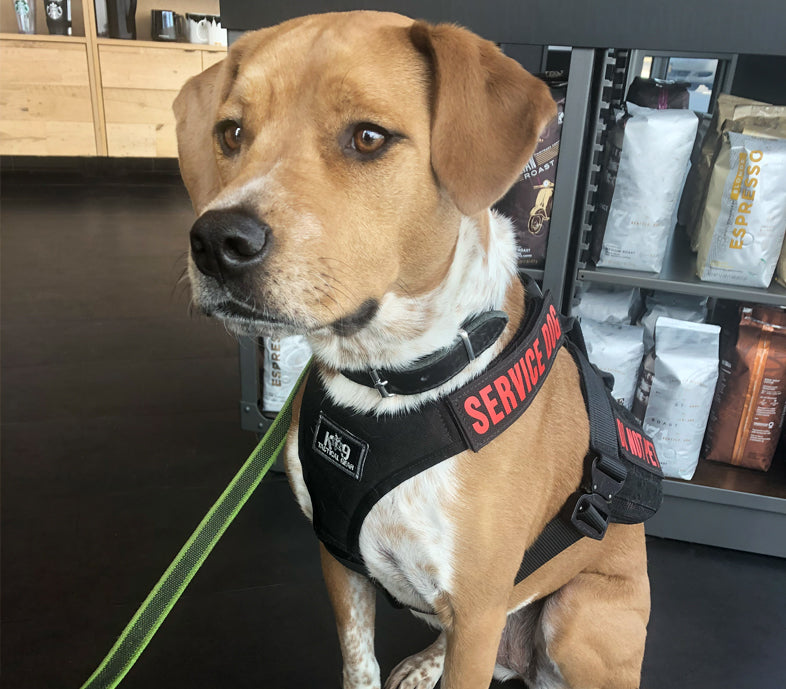Working Dog Classes Service Dogs, Therapy Dogsand More...
We provide a variety of working dog trainings.


Working Dog Training
- service dogs
- emotional support dogs
- therapy dogs
- hunting dogs
About Our Working Dog Training Classes
An Emotional Support Animal (ESA) is an animal that a medical professional has determined provides a benefit to a person at home or while traveling. These animals are protected under the Fair Housing Act to allow them to live with their owner in no-animal housing situations with their animals.
They are NOT considered service dogs and are not protected under the ADA for public access. While there is no specific training that an ESA must go through, it is important that the animal be well-behaved. Owners will likely be held responsible for any damage.
Maximum Canine trainers are able to put the basic obedience in place for your dog to be a solid citizen at home and help ensure that the dog is as useful as possible in your home environment.
Our basic and advanced obedience programs, combined with a Canine Good Citizenship and a Community Canine test is the perfect way to prepare your emotional support animal for as many real world situations as possible.
A service dog is one that is trained to perform a specific task (or tasks) to mitigate some aspect of the handler’s disability, or medical condition. Tasks are defined as a behavior that has been individually trained to aid the handler in some way (i.e. licking the face is comforting but not a task, while licking the face as an alert to low blood sugar is considered a task).
ADA Protected
Service dogs are protected under the ADA for public access and may be taken to non-pet-friendly places, provided they have undergone public access training, are well behaved in a public setting, and are at least in training for a task(s). Service dogs can be used for anything from seizure alerts and diabetes alerts to psychiatric conditions, such as PTSD and panic disorders.
All service dogs must go through rigorous public access and task training that emotional support animals do not require. They must learn to ignore dropped food in restaurants, they must also not be distracted by other people or animals while on duty—distracting a service dog could cause catastrophic health problems if the dog were to miss the signs of an impending seizure, for example.
Maximum Canine trainers can assist you in training your service dog:
• by instilling basic obedience
• exposing them to public places & performing basic behaviors
• handling public interactions
• teaching the dog various tasks that will help with the handler’s disability
Service Dog Evaluations Available
Training your own service dog is definitely possible if the dog has the proper temperament (because not all dogs are suited for this kind of work), and we would be happy to evaluate or find a dog more suited to help you if you have a disability and require a service dog to help. We can also help you find a puppy to train as a service dog.
Our programs for service dog training vary depending on:
• what tasks you need the dog to perform
• how much of an obedience background the dog has
• the dog’s age
The average service dog, started as a puppy, takes approximately 2 years to fully train. Of course, any dog will require maintenance training to keep its skills sharp as it continues through its life.
Therapy dogs are used by a medical professional or volunteer to aid someone other than the handler. Therapy dogs often visit:
• nursing homes
• hospitals
• schools
• & more
When visiting, they are meant to lift the spirits of patients and educate students. They must pass the AKC Canine Good Citizenship (CGC) test or similar behavioral testing and it is recommended they go through some kind of distraction training such as the AKC Community Canine test since they need to be around all kinds of medical equipment, people, environments, and sounds. These dogs are NOT protected by the ADA or the Fair Housing/Air Carrier Access Acts and do not have public access rights.
Maximum Canine trainers are certified to give both the Canine Good Citizenship and Community Canine tests and can help your dog become desensitized to a variety of medical equipment and situations.
Therapy Dogs International Preparation
Our experienced trainers at Maximum Canine can help your dog prepare for testing by a therapy dog organization such as Therapy Dogs International (TDI).
What is included in the TDI test
Group exercises:
• Basic Obedience
• Supervised Separation
• Getting through a crowd
• Group Sit/Stay
• Group Down/Stay
• Visit with a Patient
Individual exercises:
• Reaction to unusual situations
• Pass a person on crutches
• Pass a person running and waving their hands
• Loud noise near the dog
• Heeling pattern (left turn, right turn, about turn, stop and sit, down)
• Leave it- dog refuses a treat from a patient
• Leave it- dog ignores food and water left on the floor
• Meeting another dog
• Walking politely through the door
• Reaction to loud children
All dogs must be wearing a flat collar or non-correction harnesses at all times.
Maximum Canine’s Therapy Dog Preparation course will prepare your dog for the Therapy Dogs International test described above. The test must be performed on a regular, buckle collar or non-restrictive harness. We will expose your dog to distractions, loud noises, crutches, walkers, and wheelchairs, as well as teaching your dog to ignore food offered from patients.
If you’re interested in Personal Protection dog training, please contact us. These programs are catered to your specific needs.
We're currently creating our training program. If you're interested in being the first to hear about the launch, please sign up for our newsletter!

